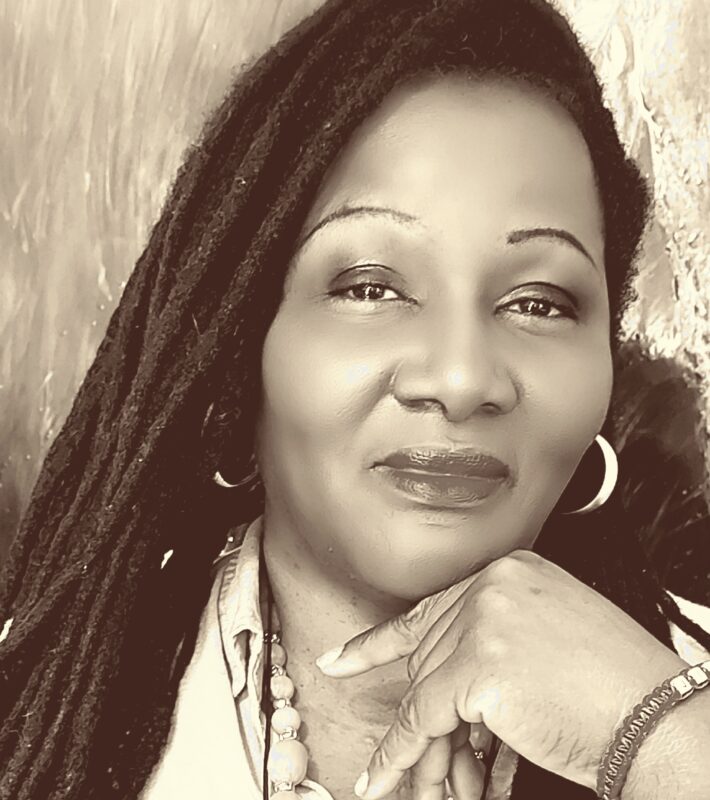Guest Post
The Superstitions Behind the Housemaid Culture in African Societies
In an article in The History Press titled, Women and Domestic Service in Victorian Society, the researcher Kate Clarke wrote, “In 1891 it was estimated that, country-wide…one in three women between the ages of fifteen and twenty were in domestic service; kitchen maids and maids-of-all work sometimes referred to as ‘slaveys.” She was referring to Victorian England in her article, the era that stamped its all-reaching claws of colonialism across several parts of the world, from Asia to Africa and across the pacific Islands and the Caribbean nations. Needless to say, this practice of domestic service was amongst the plethora of English culture the British introduced into their colonies and one which has continued to thrive till date despite its eradication in modern Britain. Of course, some aristocratic and nouveau riche households still employ the services of domestic helps to date, but these are in no way similar to the domestic servants of the 18th and 19th century England. Today’s domestic workers like the ones you might see in period dramas like “Brideshead Revisited” are not house servants or slaveys as in the past. Rather, they are paid employees, many with qualifications that make them suitable for the role, protected by legal rights and powerful unions that keep them safe from abuse and exploitation; not to mention the all-powerful might of social media that holds unscrupulous employers accountable in some instances involving celebrities. Most importantly, today’s domestic assistants are not predominantly women as in the past era, but encompass both genders.
In describing the daily chores of the Victorian housemaid, Kate Clarke noted that women servants were cheap and women were more easily dominated and kept in their place than men, hence the tendency to use them as house servants. These maids endured long hours, harsh treatment at the hands of their mistresses, as well as violence and sexual abuse by their masters and other male members. The law penalised them for giving birth to illegitimate babies resulting from their abuse and many were forced into lives of prostitution. There was no job security and they could be sacked at the whims of their employers.
Today in many African, Asian and Middle Eastern societies, the exact horrific practice still continues to thrive. There’s hardly a month that goes by without another scandalous story of domestic help abuse coming out of The Middle East against predominantly African, Indian, Pakistani and Philippina women. A 2020 article in The Telegraph exposed how a young Ghanaian woman working as a domestic worker in Lebanon, escaped back to Ghana, carrying just the clothes she wore on her back. According to the article, “Her first employer had confiscated most of the possessions she brought over with her; the second raped and tortured her. In June, with help from This Is Lebanon, a human rights organisation fighting labour exploitation, the 29-year-old found her way onto a repatriation flight.”
Another article in The Independent by the writer Adaobi Tricia Nwaubani with the headline, “Trafficked, beaten and abused: The life of a Nigerian house girl” narrates the tragedy of a young African housemaid trafficked and abused from the age of 10 years and subjected to inhuman treatment at the hands of her mistress until she was contracted to another employer, still engaged in the same housemaid occupation. According to the report, “Many girls are sent away by their parents who cannot afford to feed or school them, while others provide for their families – sometimes acting as the main breadwinner. Some girls, like Titi, are abused, cut off from their relatives, denied an education and left with nowhere to turn.” It notes that, with the practice of housemaid ingrained in the Nigerian culture and the absence of adequate laws to protect them, the plight of housemaids will be difficult to eradicate. Even the country’s anti trafficking laws only criminalises the employment of children under 12 years in domestic labour. A child of 12 years should not be made to work in a decent, civilised and just society.
There are countless other tragic stories like these across the globe and history shows that the main factors that drove this odious practice in Victorian England were poverty, illiteracy, patriarchy and class. These same factors are also behind the practice in Africa and the other former British colonies—except that in Africa, we have the added factor of superstition driving it.
I recall an incident where a lady I knew in Nigeria was advised to return her housemaid to her family without delay because the girl was a witch who was sucking the blood of her children to feed her diabolic thirst, resulting in the inexplicable constant sicknesses the children experienced. But first, the maid was taken to an Aladura spiritualist church known for gruelling fasting marathons, visions, prophesies and divine healings. There, the prayer warriors flogged the demon out of the young maid with wiry Koboko whips and got her to confess her witchcraft before she was un-witched and then, promptly sacked by her mistress.
This case is common in African rural communities where mental health and neurodivergence are practically unknown due to cultural beliefs and illiteracy. Children who are different, e.g Autistic children, are either considered as botched reincarnations or hexed victims of malevolent forces and enemies. Others with epilepsy for instance, are viewed as victims of demon possession, while those with independent and rebellious streaks are considered troublesome and better removed from their families to avoid them contaminating the good children with their evil. I was one of such children.
Despite my father being a very wealthy solicitor and politician, he found my rebellious behaviour too much to handle. At a very early age, I was constantly flogged by my father and various uncles he invited to discipline me to curb my rebellious streak. In despair, he resorted to sending me away to live with various families as a house-help. One of those households belonged to a lady who had worked as my mother’s housemaid and nanny in her youth before eventually getting married to a wealthy man. I ended up ironically working as her new-born’s nanny and housemaid. Thankfully, my mother had treated her very kindly and she returned the same kindness to me. I continued to attend the same exclusive primary school as my siblings, albeit it was tough to wave them goodbye at the end of each day. The highlight of my life was on the few occasions my mother came with the driver to pick up my siblings from school and we got to hug each other. She would always bring me treats of peanuts, sweets, biscuits and fruits at those times, since my father and the clansmen had banned her from visiting me and disrupting my adaptation into my new household.
By the time I had lived in two other households as a maid, I became adept at dealing with the sudden separation from my siblings. Save from my first call of duty, the only other time I recall being traumatised with my eviction from my mother and siblings was when my father dragged me off on a Easter Sunday. I was wailing, begging him to let me spend the holiday with my mum and siblings but he was deaf to my cries and I found myself in yet another household. This one turned out to be the worst of the lot. It was there that I learnt how to tie scarfs around my fast-developing breasts to go to school because nobody got me bras and it hurt to run around with my flapping boobs. I also developed terrible skin sores from untreated mosquito bites that left scars on my flesh. These skin sores were later behind my first suspension from secondary school when I sneaked out of my dormitory to attend the famous Osborn Crusade in 1974, which promised a miraculous healing. I was twelve years old.
Through the night-long vigil at the crusade, I prayed as I had never prayed to Jesus to make those unsightly mosquito scars ruining my life to disappear. I believed T.L Osborn’s words completely. After all, he was a white man of God and I was still the product of my colonial upbringing and indoctrinations. I returned to school the next morning to face the wrath of my housemistress and the painful realisation that Jesus had failed to heal my scars. My suspension only reinforced my father and clansmen’s belief of my wild unruliness, one that was to magnify when I lost my faith in Christianity and stopped going to church. My mother in despair, took me to an Aladura church for a river exorcism in the middle of the night. It failed to cure my waywardness, but it helped solidify my aversion to organised religion and distrust of adults.
My personal experience of talking with other housemaids in my situation and seeing what went on in other homes showed me the ugly superstitions that drove this odious culture that was brought into the African society by colonialism, and now fed by capitalism. Poor families in rural communities now tend to practically sell off their so-called troublesome or defective children to wealthy families and patrons in the urban areas as a way to provide income for their struggling families. Widows with young children face having their children forcibly removed from them by their husband’s clansmen to provide money for their upkeep even though they’ll never lay hands on any such monies, which eventually end up in the pockets of the males. Any sums agreed with the employers are paid directly to the parents or extended families, and the only benefit the child receives is schooling, if they are lucky.
Otherwise, they will continue to work in inhuman conditions, enduring unspeakable abuses until they become too old or ill and are then replaced with another doomed younger brand. The lucky children that display no signs of differences or afflictions, physical, mental or supernatural, are spared this ordeal. Occasionally, there might be a son that displays unusual great intellect which makes the family dream of future glories through academic success. Those sons are sent off as houseboys with strict conditions about their schooling. The parents make regular visits to the employers’ homes to ensure their precious sons are getting the agreed education and all other benefits negotiated.
These days, there are several organisations and activists working towards curbing this vile practice but unfortunately, until they tackle the superstitions and cultural beliefs driving it, more children, mostly young girls, will continue to live in fear as I did, about when their next terrifying posting will arrive.
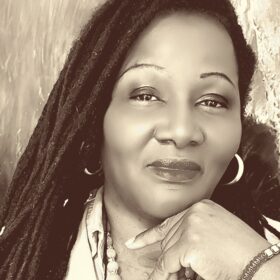
About The Writer
Nuzo Onoh is an award-winning Nigerian-British writer of speculative fiction. She is a pioneer of the African horror literary subgenre. Hailed as the “Queen of African Horror”, her writing showcases both the beautiful and horrific in the African culture within fictitious narratives. Nuzo is a Bram Stoker Lifetime Achievement Award recipient.
Nuzo’s works have featured in numerous magazines, podcasts, and anthologies, and she has given talks and lectures about African Horror, including at the prestigious Miskatonic Institute of Horror Studies, London. Her works have also appeared in academic and feminist studies and has been longlisted, shortlisted and recommended in numerous lists.
Nuzo holds a Law degree and Masters degree in Writing, both from Warwick University, England. She is a certified Civil Funeral Celebrant, licensed to conduct non-religious burial services. An avid musician, Nuzo plays both the guitar and piano, and holds an NVQ in Digital Music Production. She lives in The West Midlands, United Kingdom.
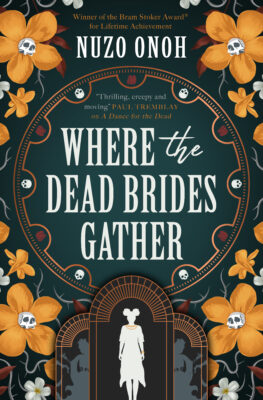
About Nuzo Onoh’s Forthcoming Book
A powerful Nigeria-set horror tale of possession, malevolent ghosts, family tensions, secrets and murder from the recipient of the Bram Stoker AwardÒ for Lifetime Achievement. Perfect for readers of Tananarive Due, Chikodili Emelumadu and Paul Tremblay.
Bata, an 11-year-old girl tormented by nightmares, wakes up one night to find herself standing sentinel before her cousin’s door. Her cousin is to get married the next morning, but only if she can escape the murderous attack of a ghost-bride, who used to be engaged to her groom.
A supernatural possession helps Bata battle and vanquish the vengeful ghost-bride, and following a botched exorcism, she is transported to Ibaja-La, the realm of dead brides. There, she receives secret powers to fight malevolent ghost-brides before being sent back to the human realm, where she must learn to harness her new abilities as she strives to protect those whom she loves.
By turns touching and terrifying, this is vivid supernatural horror story of family drama, long-held secrets, possession, death – and what lies beyond.
OUT OCTOBER 2024


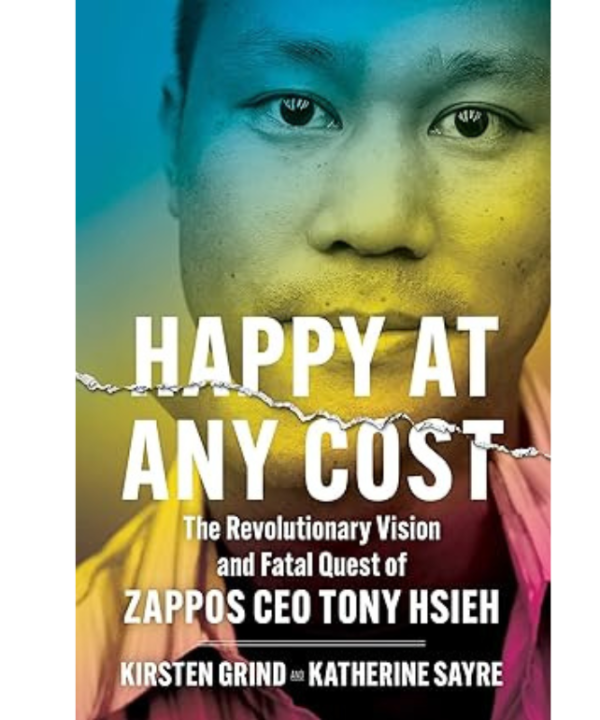 Happy at Any Cost: The Revolutionary Vision and Fatal Quest of Zappos CEO Tony Hsieh
Happy at Any Cost: The Revolutionary Vision and Fatal Quest of Zappos CEO Tony Hsieh 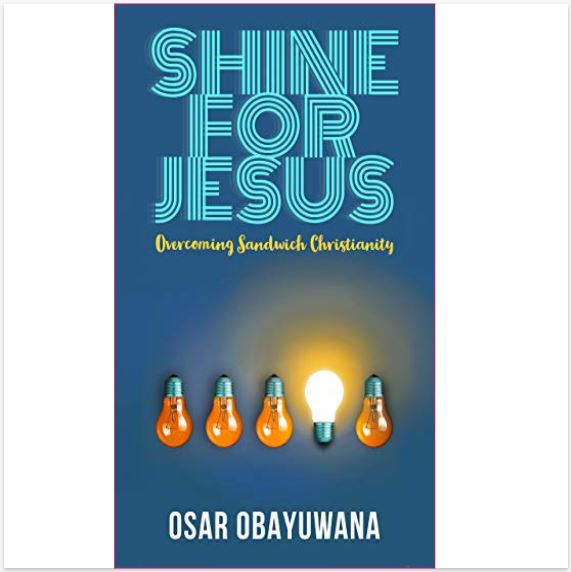 SHINE FOR JESUS: Overcoming Sandwich Christianity
SHINE FOR JESUS: Overcoming Sandwich Christianity 